Hong Kong police arrest dozens for violating national security law
Police in Hong Kong have arrested dozens of individuals for violating the national security law by either organizing or participating in an unauthorized “primary election” in the semi-autonomous city last year.
Local media reported on Wednesday that police had arrested more than 50 individuals on subversion charges over the unauthorized primary vote, which was held in July last year in an attempt to increase the chances of opposition candidates to take control of the 70-member legislature in the city.
An unnamed police source said 53 people had been arrested as of noon.
Among those arrested were former Democratic Party and Civic Party lawmakers James To Kun-sun, Lam Cheuk-ting, and one of the poll’s architects Benny Tai.
Police also served court orders at the offices of media outlets Apple Daily, Stand News, and In-Media. Apple Daily and Stand News co-organized election forums for the candidates, while In-Media ran advertisements related to the campaign.
As part of the operation, police also searched the offices of the Hong Kong Public Opinion Research Institute (HKPORI) — which helped organize the primaries — as well as the Ho, Tse, Wai & Partners law firm.
Hong Kong’s Public broadcaster RTHK reported that American lawyer John Clancey had been arrested during the raid of the law firm.
Clancey is the chairman of the Asian Human Rights Commission and a member of the Power for Democracy group, which helped organize the primary.

The unauthorized primary voting last July was held to choose opposition candidates to run for seats in Hong Kong’s legislative poll in September, which was later postponed due to the coronavirus pandemic.
The opposition parties hoped to gain a majority in the city’s parliamentary elections. Dominating the chamber would give them more power to stall budgets and legislation.
China’s Liaison Office had warned at the time that such campaigning could be found illegal under the national security law.
Meanwhile, Hong Kong’s Secretary for Security John Lee said following the arrests that the government would not tolerate “subversive” acts.
Speaking at the city’s Legislative Council on Wednesday, Lee confirmed that a group of people had been arrested in an operation targeting people suspected of attempting to “overthrow” the city’s government. He also said the group planned to cause “serious damage” to society.
“The operation today targets the active elements who are suspected to be involved in the crime of overthrowing, or interfering seriously to destroy the Hong Kong government’s legal execution of duties,” he said.
Beijing defends Hong Kong arrests
Later, China defended the arrests in Hong Kong, saying it supported the city’s authorities in the fulfillment of their duties. Chinese Foreign Ministry spokeswoman Hua Chunying made the comment at a press conference in the capital, Beijing, stressing that Hong Kong people’s rights and freedoms under the law were not affected.
The Chinese spokeswoman further described the arrests as a necessary measure to stop “external forces and individuals” from colluding to undermine China.
The only damage was to “the kind of freedom of some external forces and individuals in Hong Kong to collude with each other to attempt to undermine China’s stability and security,” she said.
China approved the new security law for Hong Kong in late May. The law was enacted at the end of July.
The law punishes crimes of secession, subversion, and collusion with foreign forces with sentences of up to life in prison in Hong Kong. Mainland security agencies are also officially based in Hong Kong for the first time under the law.
Among other details is a ban on violators of the law standing for elections and greater oversight of non-governmental organizations and news groups.
Critics of the law view it as a blow to the region’s autonomy and civil liberties. Protests erupted in Hong Kong after the law was proposed on May 22.
China says the law was necessary following violent anti-government protests that escalated in June 2018.
Hong Kong was rocked by violent protests over another bill that would have reformed its extradition law in 2018. Rioters vandalized the city, destroying public and private property and attacking anyone deemed to be pro-government. Hong Kong dropped that bill, but the acts of violence continued.
The Chinese government says the United States and Britain fanned the flames of that unrest in Hong Kong by supporting the protesters.
Hong Kong has been governed under the “one-country, two-system” model since the city — a former British colony — was returned to China in 1997.
Hamas thanks Iran, Resistance Front following achievement of ceasefire in Gaza
'Capitulation': Israeli officials and media concede Gaza defeat as truce unfolds
'Gaza has won': Social media users react to ceasefire with mix of relief, joy
Iran seeks South Korea’s assistance for AI, fiber-optic projects
VIDEO | Iran's 'Eqtedar' (Power) maneuver
Israel hits HTS military target in Syria for 1st time since fall of Assad
VIDEO | Press TV's news headlines
Israel has slaughtered 13,000 students in Gaza, West Bank






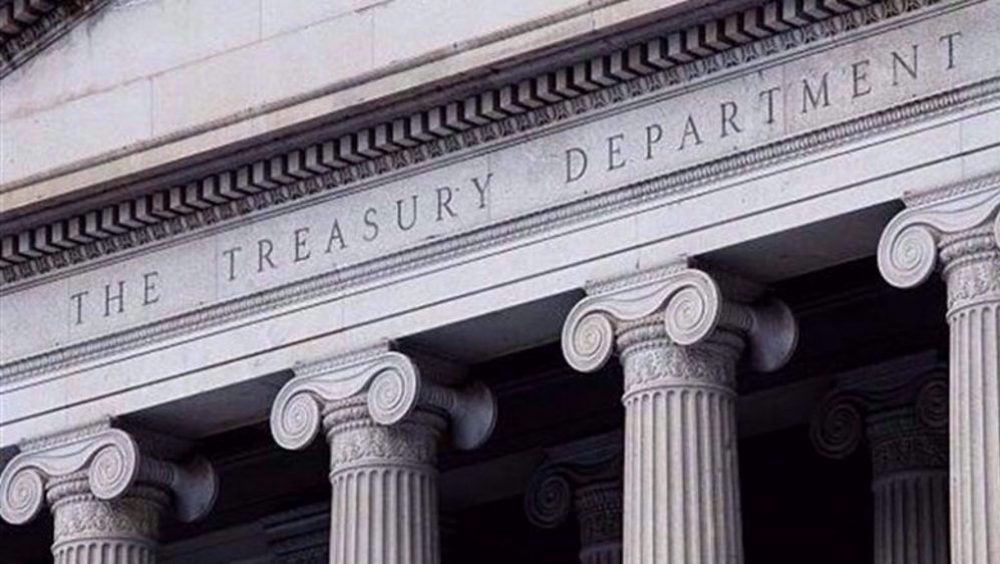



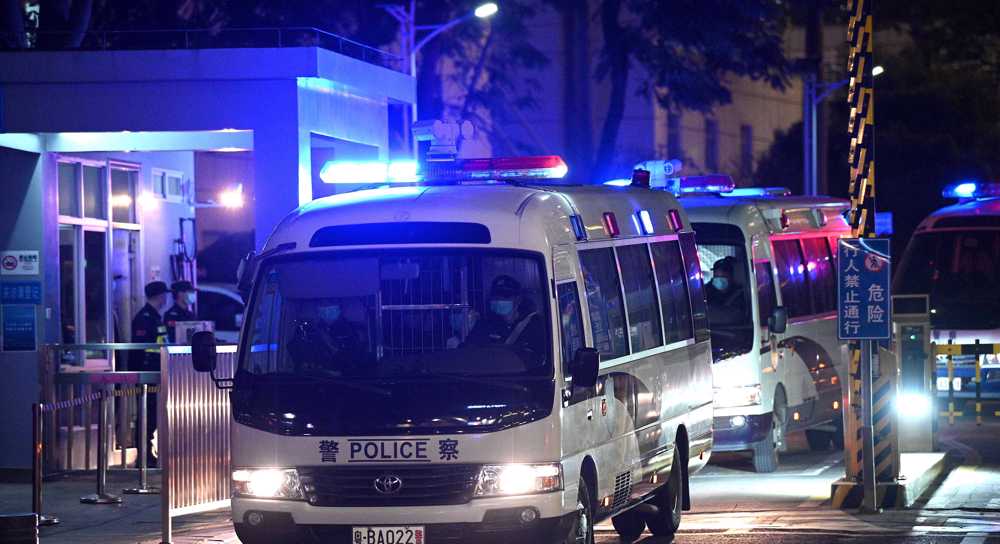
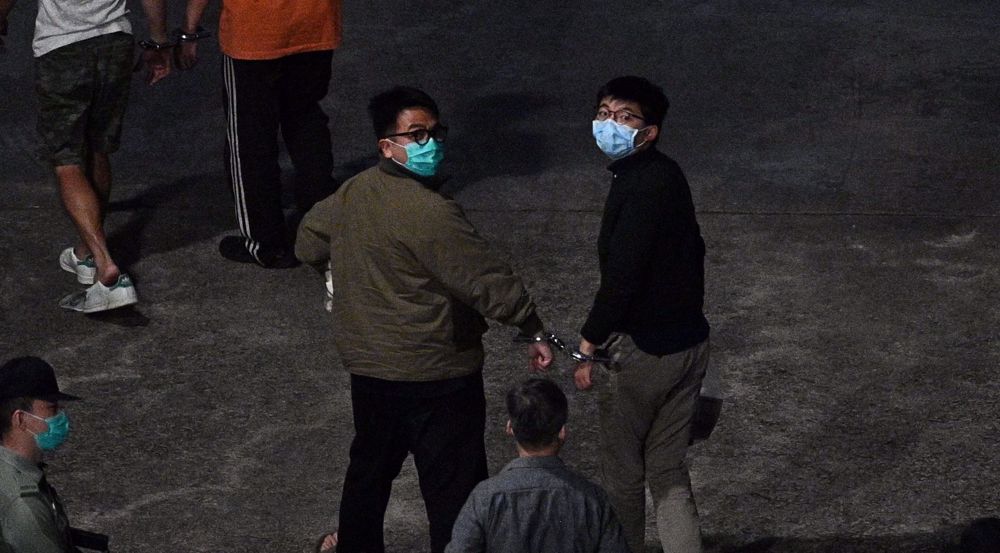
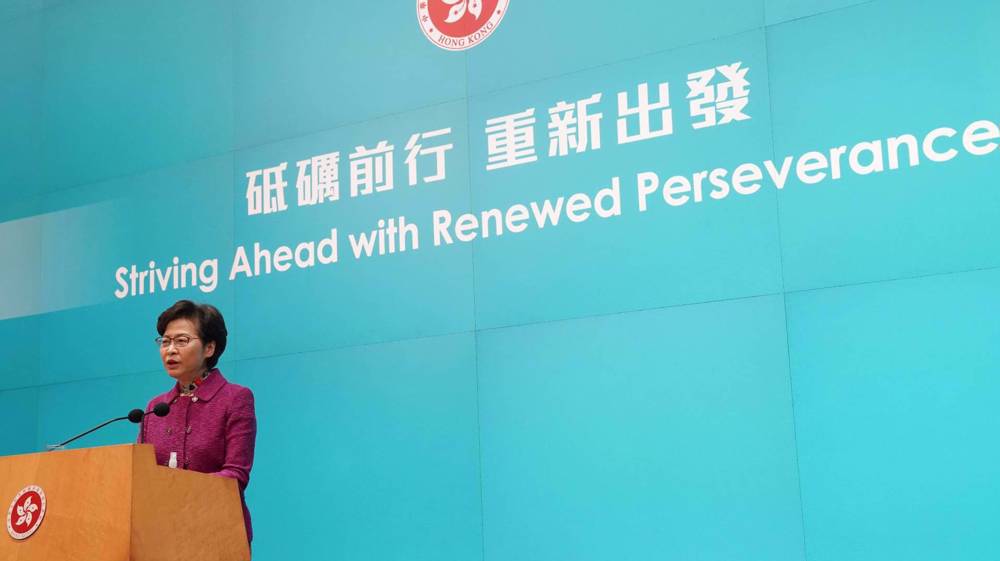
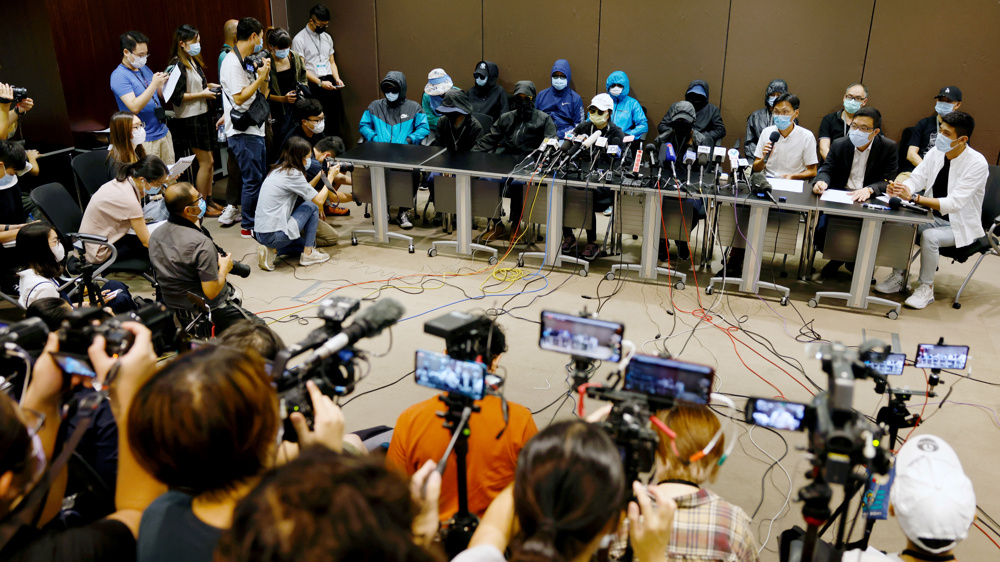

 This makes it easy to access the Press TV website
This makes it easy to access the Press TV website